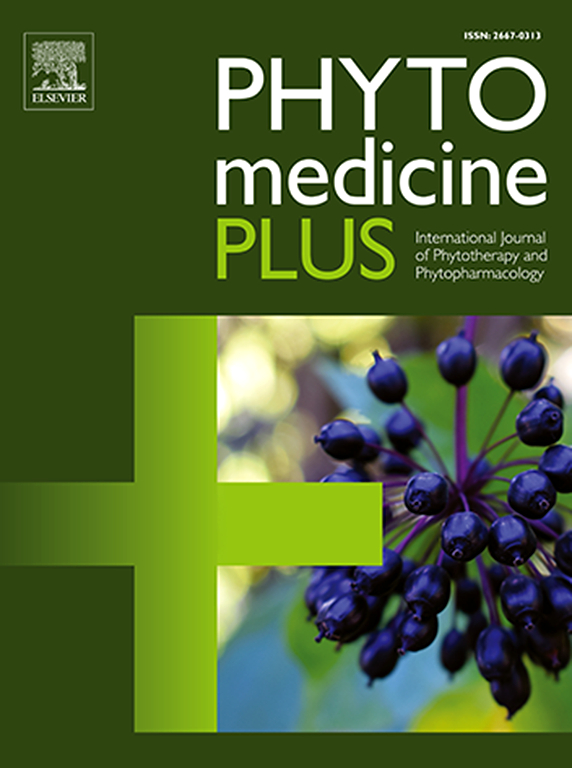探索传统药用植物在癌症治疗中的作用:目前的疗效和未来的方向
Q3 Pharmacology, Toxicology and Pharmaceutics
引用次数: 0
摘要
尽管现代医学取得了进步,但由于其文化意义、有效性和较低的成本,植物疗法仍然很受欢迎。本文综述了药用植物及其代谢物在治疗癌症方面的潜力,探讨了它们的作用机制和治疗用途。主要研究结果表明,槲皮素、姜黄素和血碱等植物化学物质通过靶向JAK/STAT、ERK/MAPK和p53等信号通路,诱导细胞凋亡和抑制肿瘤转移,发挥抗癌作用。此外,新出现的证据强调了它们在提高常规治疗效果和减少相关副作用方面的潜力。在Scopus、PubMed、Medline、PubChem、b谷歌Scholar和Academic search Premier上进行了详细的检索,使用关键词如传统植物、草药和不同组合的草药。结论植物疗法在癌症治疗中具有提高治疗效果和减少副作用的前景。将传统药用植物纳入现代护理可以提供个性化、更安全的治疗选择。本文对植物化学物质的抗癌特性进行了分类,深入探讨了植物化学物质的分子机制,并对其标准化和监管方面的挑战进行了探讨。通过解决这些差距,它为推进植物疗法在癌症治疗中的应用提供了一个全面的框架。本文章由计算机程序翻译,如有差异,请以英文原文为准。

Exploring the role of traditional medicinal plants in cancer therapy: present efficacy and future directions
Introduction
Despite the advancements in modern medicine, phytotherapy remains popular due to their cultural significance, effectiveness, and lower costs. This review focuses on the potential of medicinal plants and plant metabolites in treating cancer, examining their mechanisms of action and therapeutic uses. Key findings reveal that phytochemicals such as quercetin, curcumin, and sanguinarine exhibit anticancer properties by targeting signalling pathways like JAK/STAT, ERK/MAPK, and p53, as well as inducing apoptosis and inhibiting metastasis. Furthermore, emerging evidence underscores their potential to enhance the efficacy of conventional treatments and reduce associated side effects.
Methodology
A detailed search on Scopus, PubMed, Medline, PubChem, Google Scholar, and Academic Search Premier was conducted for this review, using a strategy with keywords such as traditional plants, herbal medicine, and herbs in varying combinations
Conclusion
Phytotherapy in cancer treatment shows promise by enhancing therapy effectiveness and reducing side effects. Integrating traditional medicinal plants into modern care could offer personalized, safer treatment options. This review stands out by not only classifying the anticancer properties of phytochemicals but also by delving into their molecular mechanisms, and the challenges of standardization and regulatory oversight. By addressing these gaps, it provides a comprehensive framework for advancing phytotherapy in cancer treatment.
求助全文
通过发布文献求助,成功后即可免费获取论文全文。
去求助
来源期刊

Phytomedicine Plus
Medicine-Complementary and Alternative Medicine
CiteScore
3.70
自引率
0.00%
发文量
178
审稿时长
81 days
期刊介绍:
 求助内容:
求助内容: 应助结果提醒方式:
应助结果提醒方式:


